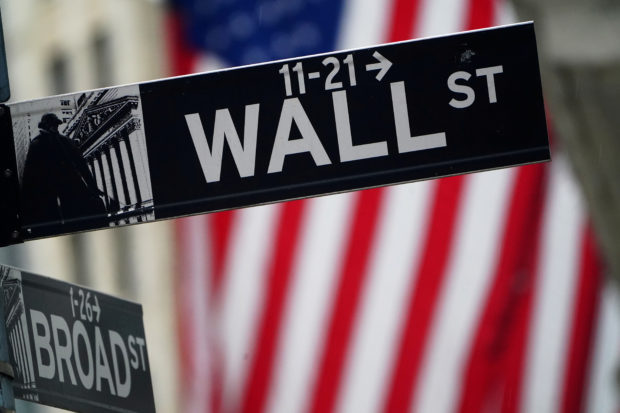U.S. stocks end mixed as Dow recovers on strong economic data

(REUTERS/File Photo)
Wall Street closed mixed at the end of a volatile week of trading, with the Dow Jones Industrial Average being the only bright spot, as inflation concerns loom over growth names.
The Dow was lifted by industrial heavyweights, including Boeing and Caterpillar Inc.. Boeing jumped 3.1% as industry sources said the planemaker has drawn up preliminary plans to increase in 737 MAX output to as many as 42 jets a month in fall 2022..
Banks, including Goldman Sachs, and JP Morgan , also supported the Dow.
The S&P 500 pared its earlier gains, down 0.08% to 4,155.86, marking the index’s drop for a second consecutive week. Information technology and consumer discretionary led the selloff while economy-linked financials and energy posted biggest sectoral gains.
Analysts expect the rotation trades to continue to play out with the vaccine rollouts and reopening of the economy.
Article continues after this advertisement“Once we get to the latter part of 2020, we expect to see a greater rotation out of technology and into more cyclical and defensive stocks as the recovery takes greater shape,” said Greg Bassuk, chief executive at AXS Investments.
Article continues after this advertisementStrong economic data has put pressure on growth stocks, which are more likely to be impacted by potential interest hike. IHS Markit’s data showed U.S. business activity picked up in May amid strong domestic demand, but backlogs of uncompleted work are piling up as manufacturers struggle to find raw materials and labor.
Following a three-day slump, Wall Street’s main indexes gained ground on Thursday after data showed the fewest U.S. weekly jobless claims since the pandemic-driven recession in 2020, pointing to a pickup in labor market.
Nasdaq Composite finished Friday down by 64.75 points, or 0.48%, to 13,470.99. Despite the weakness on Friday, the Nasdaq quit a four-week losing streak as investors continue to rotate around tech-related mega-cap shares, which recently took the biggest hit on inflation worries.
“Investors have to change their mindset and understand that tech is going to be a longer trade now. They’re unlikely to see that 20% pop in Apple in the next couple of months,” said Sylvia Jablonski, chief investment officer at Defiance ETFs.
Bitcoin dropped after China’s Vice Premier Liu He said his government will crack down on the virtual currency’s mining and trading activities. Cryptocurrency-related stocks such as Coinbase Global fell by 3.9%.
Ford Motor Co surged by 6.7% in its biggest one-day gain since December after it announced plans on Thursday to form a battery joint venture in the United States with South Korean battery maker SK Innovation to support its electric vehicle rollout, confirming a Reuters report earlier.
Nvidia Corp added 2.6% after announcing a four-for-one stock split, as it looks to make its stock less expensive for investors.
VF Corp slumped after the parent company of Vans and The North Face reported lower-than-expected quarterly profit.
Volume on U.S. exchanges was 9.08 billion shares. Advancing issues outnumbered declining ones on the NYSE by a 1.46-to-1 ratio; on Nasdaq, a 1.26-to-1 ratio favored advancers.
The S&P 500 posted 25 new 52-week highs and no new lows; the Nasdaq Composite recorded 119 new highs and 34 new lows.